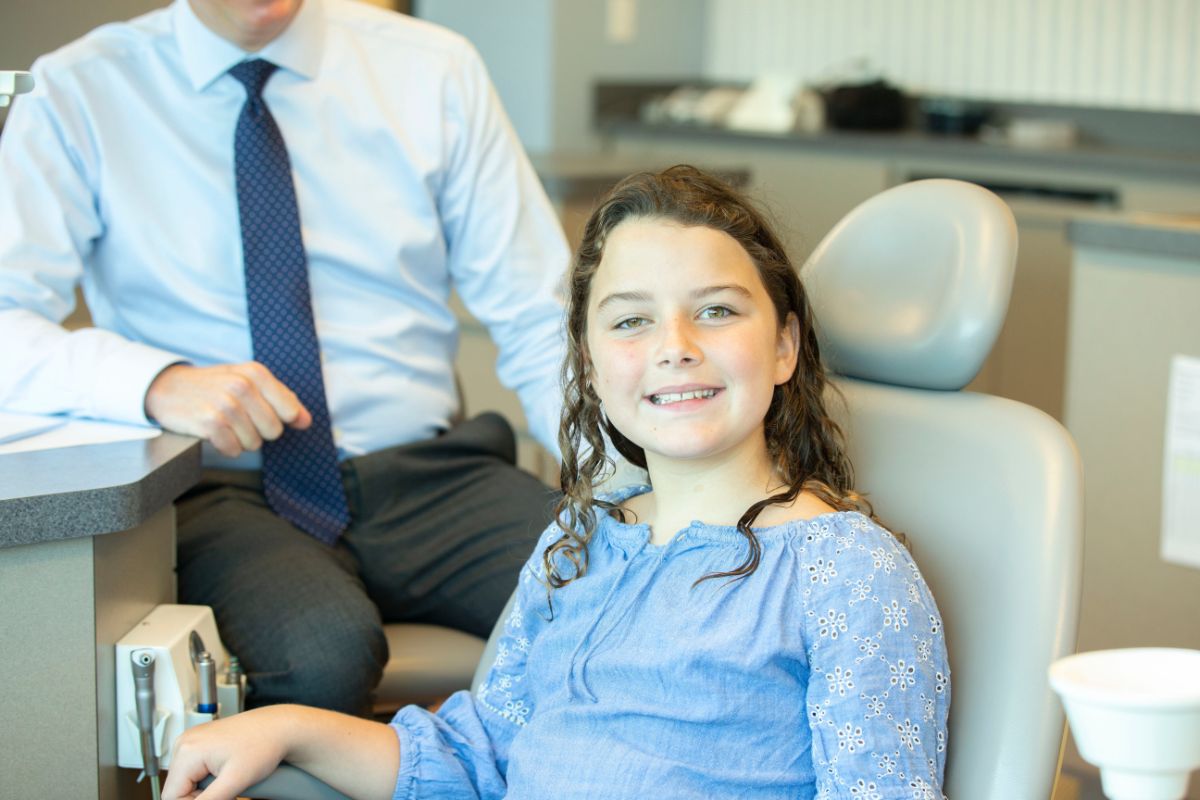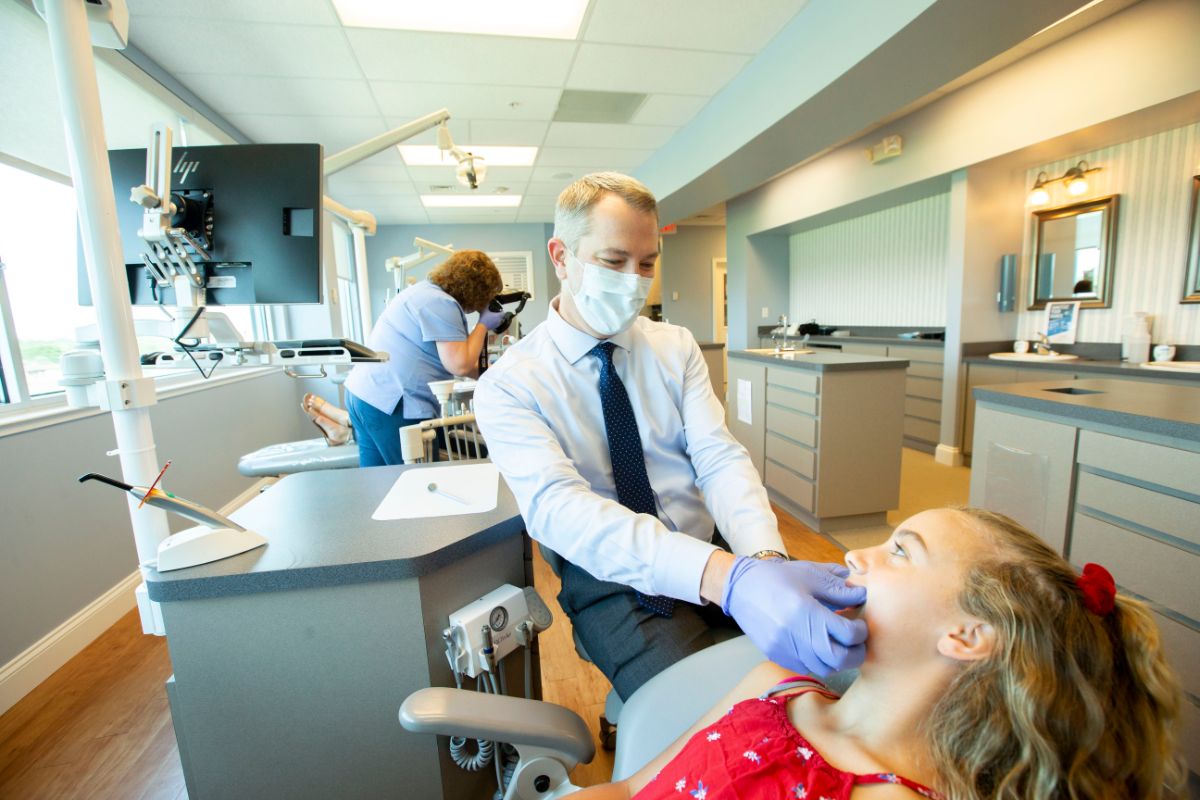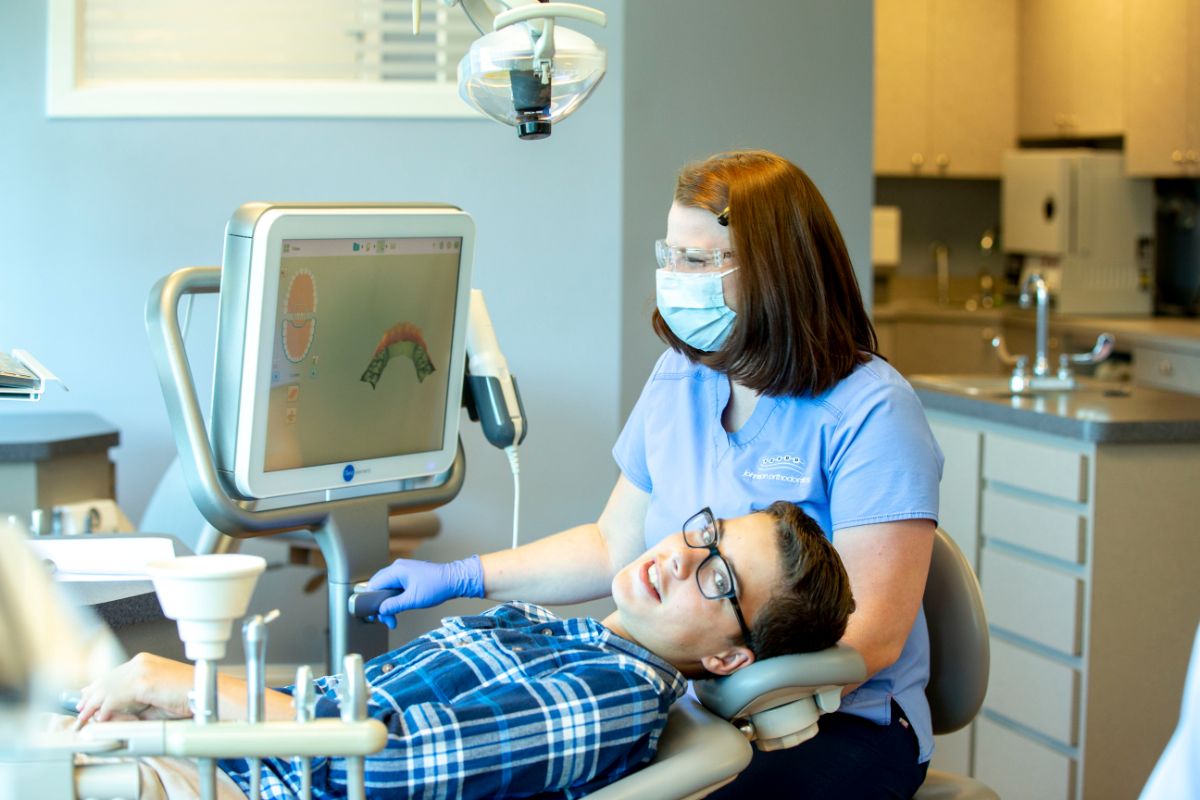Here at Johnson Orthodontics, we’ve been creating beautiful smiles for families in Rehoboth Beach for over ten years. That means we’ve seen a lot of patients in braces and clear aligners! One thing we’re always reminding them of is the importance of a good dental hygiene routine, which includes avoiding bad habits that could affect their treatment plan. When patients aren’t caring for their teeth, gums, and orthodontic appliances, it can jeopardize their progress and increase treatment times. Sometimes it can even make it hard to achieve the results we want.
As important as this advice is to our braces patients, it doesn’t just apply to them! Everyone can benefit from taking a good look at their oral hygiene. Even if you take care of your teeth and see a dentist regularly, you may still have a bad habit that could be compromising your smile. Let’s take a look at some of the worst offenders and learn how breaking these habits can boost your oral health, whether you’re in braces or not!
Chewing on ice and other objects
Lots of people like to crunch on the leftover ice in their cup, so you may think this is a pretty harmless habit. However, the tough texture and cold temperature of those cubes is actually able to fracture your teeth! Chewing on ice can also cause microscopic cracks in the surface of the enamel, something that can lead to other dental issues over time.
Ice isn’t the only culprit here, though. Things like popcorn kernels and fruit pits can also put extra stress on the teeth and occasionally lead to fractures. Chewing on items like pencils, pen caps, and fingernails are often done subconsciously, but over time, these habits can chip away at the enamel of your teeth and irritate the soft tissue inside a tooth.
If you are prone to chewing on things or biting your nails, try using sugarless gum to give your mouth something else to do when you’re bored or distracted. Healthy snacks with a satisfying crunch can be a good substitute, too. Carrots, celery, or apple slices fit this bill and as a bonus, they’re also great for your teeth and oral health!
Tooth grinding
The technical term for tooth grinding is bruxism, and it refers to the involuntary grinding of the teeth outside of normal chewing, swallowing, or speaking movements. There are several possible causes for this, including:
- stress and anxiety
- medications
- certain medical conditions
- genetics
- misalignment between the teeth and jaws
- an abnormal bite
- missing or crooked teeth
Grinding your teeth can cause many issues, from interrupted sleep to chronic headaches. Unfortunately, it can also wear down the enamel of your teeth. This will eventually lead to the exposure of the much softer dentin inside, which can result in tooth sensitivity. The sensations associated with sensitive teeth can range from mild to intense and may be long-lasting.
There are several options for treating bruxism that can help prevent any further damage and treat any damage that’s already present. This will generally involve treating any obvious underlying causes, like reducing stress, treating anxiety, and addressing dental or orthodontic issues. Proactive treatment may be recommended as well, such as wearing a mouthguard overnight.
Sometimes it helps to simply be aware that you’re grinding your teeth. If you feel yourself clenching or grinding your teeth, try positioning the tip of your tongue between your teeth to train the jaw muscles to relax. At night, you can hold a warm washcloth against your cheek to produce the same effect.
Using your teeth as a tool
We’ve seen teeth used for a number of odd jobs over the years. Tearing open bags, ripping tags off clothing, uncapping bottles—you name it and we’ve probably heard of it! Many people do this without even thinking about it, but using your teeth as tools can be hard on them. It only takes one wrong move for a tooth to be traumatized, chipped, or even fractured. and a tooth can be traumatized, chipped, or even fractured.
Try to be mindful about what you’re using your teeth for. Keep simple tools like scissors, nail clippers, and pliers in convenient places around the house so you aren’t tempted to do the dirty work with your own incisors! Reducing the amount of unnecessary stress on your teeth will help keep them strong for years to come.
Incorrect oral hygiene
Good oral hygiene goes beyond brushing and flossing once or twice a day! Take your toothbrush, for example. Some people believe that the firmer the bristles are, the better they’ll be at cleaning the teeth, but this isn’t accurate. Firm brushes can irritate the gums and may lead to sensitive teeth, especially for older adults. That’s because the gums recede as we age, exposing the roots of the teeth and increasing sensitivity. Use a toothbrush with soft bristles instead, using gentle strokes to clean the teeth and gums.
We recommend brushing with fluoridated toothpaste at least twice a day, for two minutes each time, and flossing every night before bed. This gets rid of any lingering bacteria and food particles, reducing your chances of developing tooth decay. Be sure to replace your toothbrush every 3-4 months, or sooner if you have a cold or any other illness. Using antimicrobial and fluoride mouthwashes once a day can also improve your oral health by eliminating the bacteria that causes bad breath and gum disease.
Boost your oral health with help from Johnson Orthodontics
An experienced orthodontist like Dr. Johnson is trained to diagnose and correct orthodontic issues, but identifying harmful habits is an important part of any diagnosis, too. You don’t have to be in braces or aligners to benefit from breaking a bad oral habit!
Are you in the Rehoboth Beach, Lewes, or Sussex County area and need help breaking free from a destructive oral habit? Our expert team can help! Get in touch today to schedule a FREE consultation with Dr. Johnson and take the first step towards stronger teeth and a healthier smile!
 Free Consult
Free Consult


